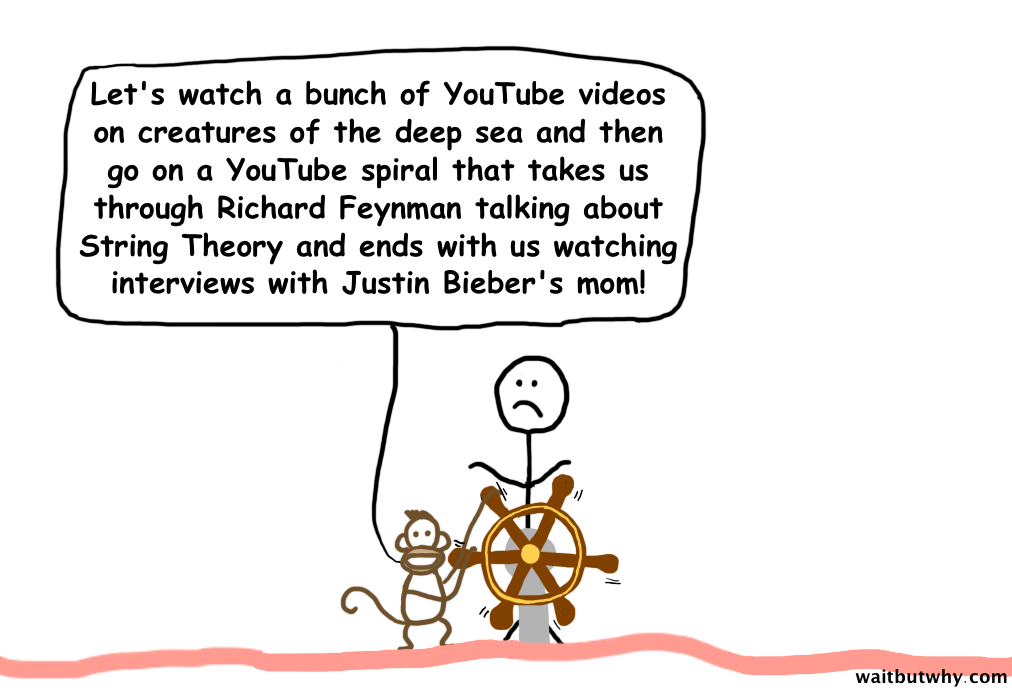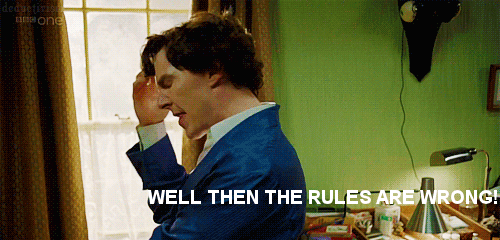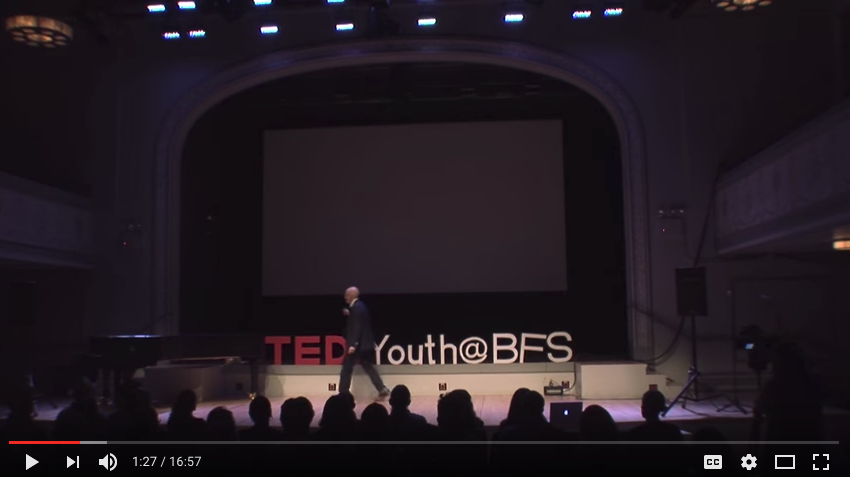Last week a reader asked me if I’d review her work before she published it publicly. I said that I could, but it wouldn’t help her solve her problem.
Her problem was this: “It’s like I know I have a Picasso ready to be painted, but I only know how to do f$%^*@# stick figures.”
There are two truths hiding in that statement:
Truth 1: You have to perfect your f$%^*@# stick figures in order to get to your Picasso (something I wrote about here: Weirdo first, pioneer second).
And then there’s the part she’s forgetting, which is Truth 2: You can make yourself famous for your stick figures!!!

Like Tim Urban from Wait But Why. These stick figures snagged the attention of Elon Musk and TED. #justsayin
I know what you’re thinking. “But that’s Tim Urban!! I can’t draw stick figures like that!!”
Sure, you probably can’t, but you’re missing the point. The point is that it’s effed up you think that in the first place. Why are we rating stick figures now?!!
I’ll tell you why.
It’s because, for the first 22 years of your life, you were indoctrinated in a system that told you you were worthless unless your stick figures were perfect.
(“Your stick figures” is a metaphor.)
Perfect stick figures = A+
Lines aren’t congruent? docked points. Turned in late? docked points. Head disproportionately larger than body? FAIL!!!!!!
The real world doesn’t work like that, but no one told you. All you learned was not to trust your instincts and, instead, to focus on doing things according to the rules you’re being graded on.
That’s why they call it “studying for the test” instead of “learning the material.”
If you study for the test (and ignore learning), you maximize your chances of getting an A and getting that reward (moving to the next grade, confirmation you’re intelligent, superiority to your classmates, approval from your parents, GPA that gets you into college…whatever the reward is you seek).
That’s why we all have a sort of Pavlovian-like response to external validation:
External validation is a proxy that a reward is coming (A+!!). It’s like our Pavlovian bell, but instead of drooling, we become obsessed with learning and perfecting rules in anticipation of future external validation.
That’s why my reader is stuck.
The pressure to write something that doesn’t suck comes from decades of being told there is a “right” and “wrong” way to do something.
There isn’t.
The real world is much more malleable than the classroom.
Now, if you’re thinking, “But Margo, there are rules.” You’d be correct. There are rules. But the part they don’t tell you is that you don’t have to learn and memorize them.
The rules you can’t violate remain in tact as soon as you try to violate them. That’s how you learn the rules.

Exactly. Well, sometimes. You won’t know until you try to break them.
“That’s why memorizing theories won’t make you a scientist…or rewriting somebody else’s headlines won’t make you a copywriter” – Straight out of Breakthrough Advertising.
Templates don’t work.
I mean they do…to a point.
It’s like paint-by-number. You will get a decent painting, buts it’s no Miró. To get to Miró you need a different kind of “template” – you need to trust your instincts.
And when you do, you invent the future.
Like these people. These are organizations created by people who made things up. They invented the answers to problems they found. No templates:
And a lot of these sucked first. (Look at the Khan Academy early youtube videos. They’re terrible (and awesome)).
The point is you should do things wrong. That’s why I told my reader it wouldn’t help her if I looked at her work before she posted it. It robs her of the real lesson: developing the thick skin she needs to do things wrong, poorly, and incorrectly (and in public).
And learning to invent her own rubric for success. Otherwise, she’ll get addicted to my approval (because remember: we’re always seeking external validation).
She has to learn to be the judge of her own work.
To paraphrase my brilliant friend Shannon, “You always know when your work is great and when it sucks…if you’re being honest.”
You can’t develop that 6th sense of you’re waiting to learn the rules.
Mess around. Create things that suck. Discover for yourself what works and what doesn’t.
That’s the only way you’ll get better.





